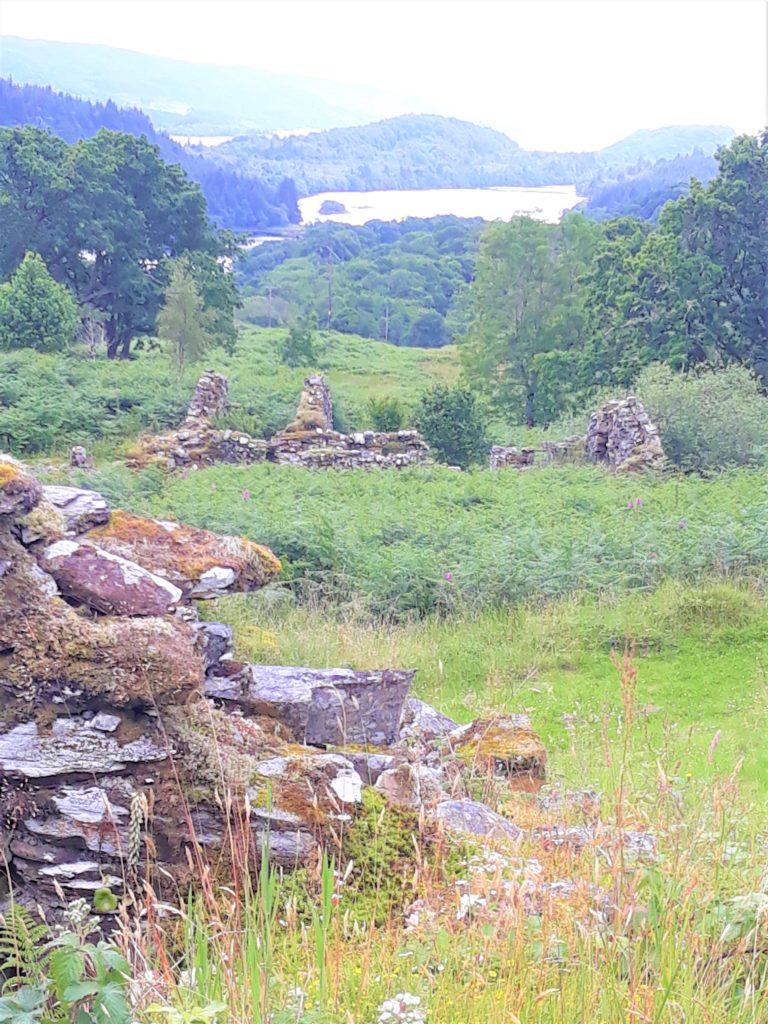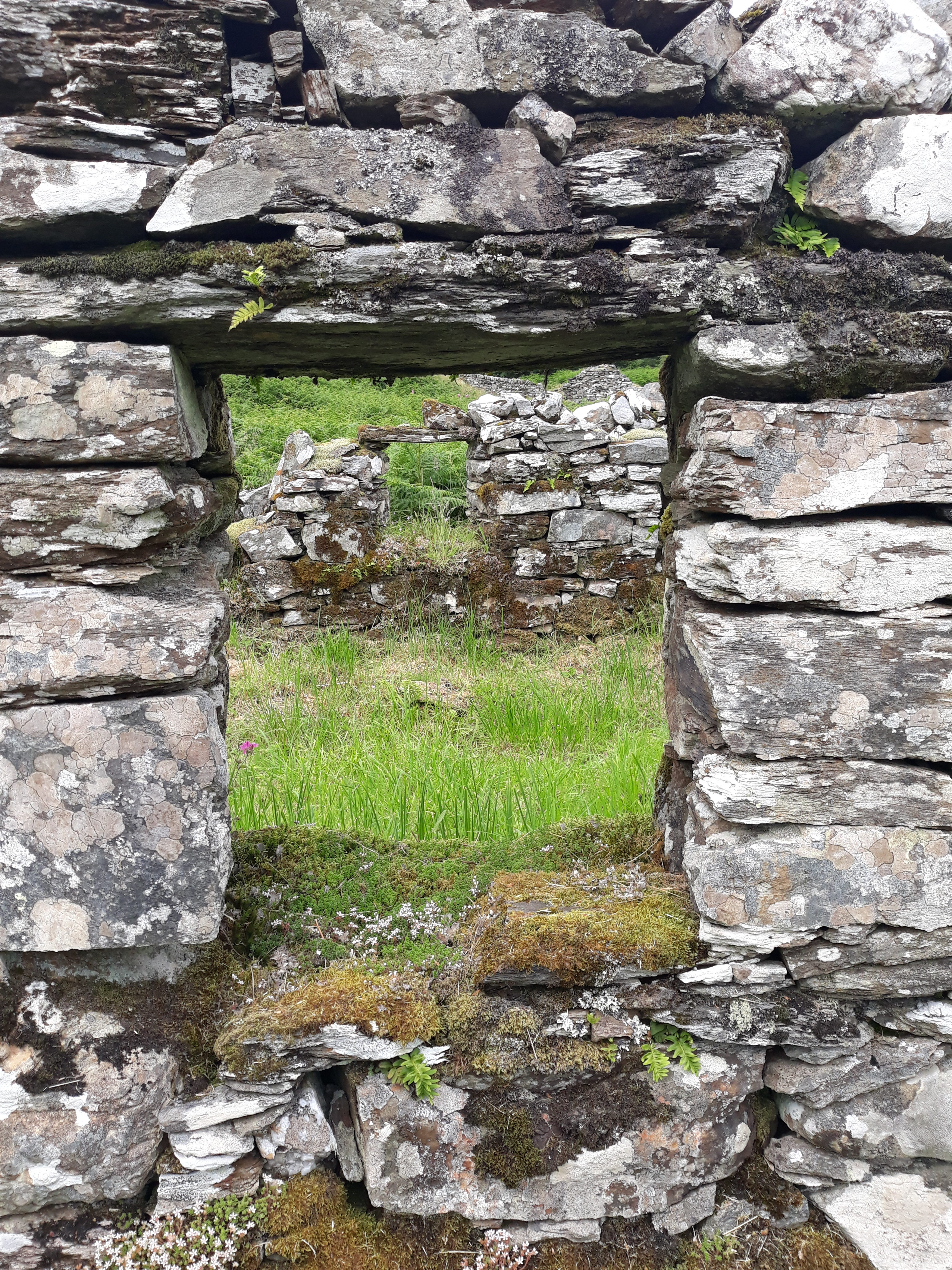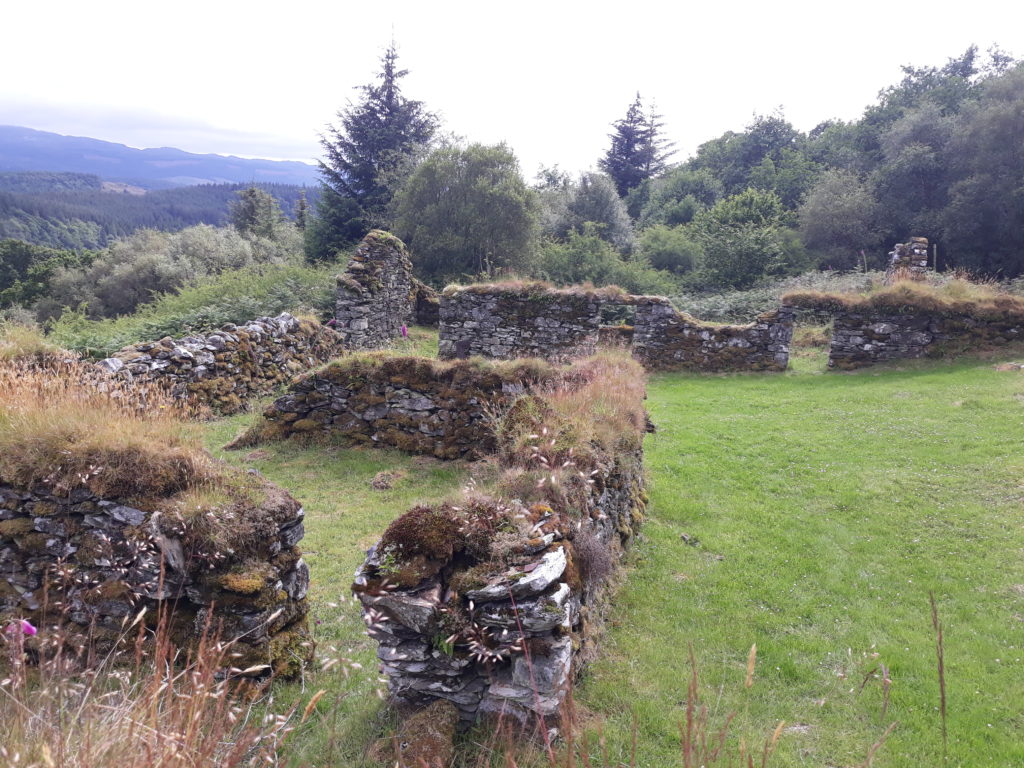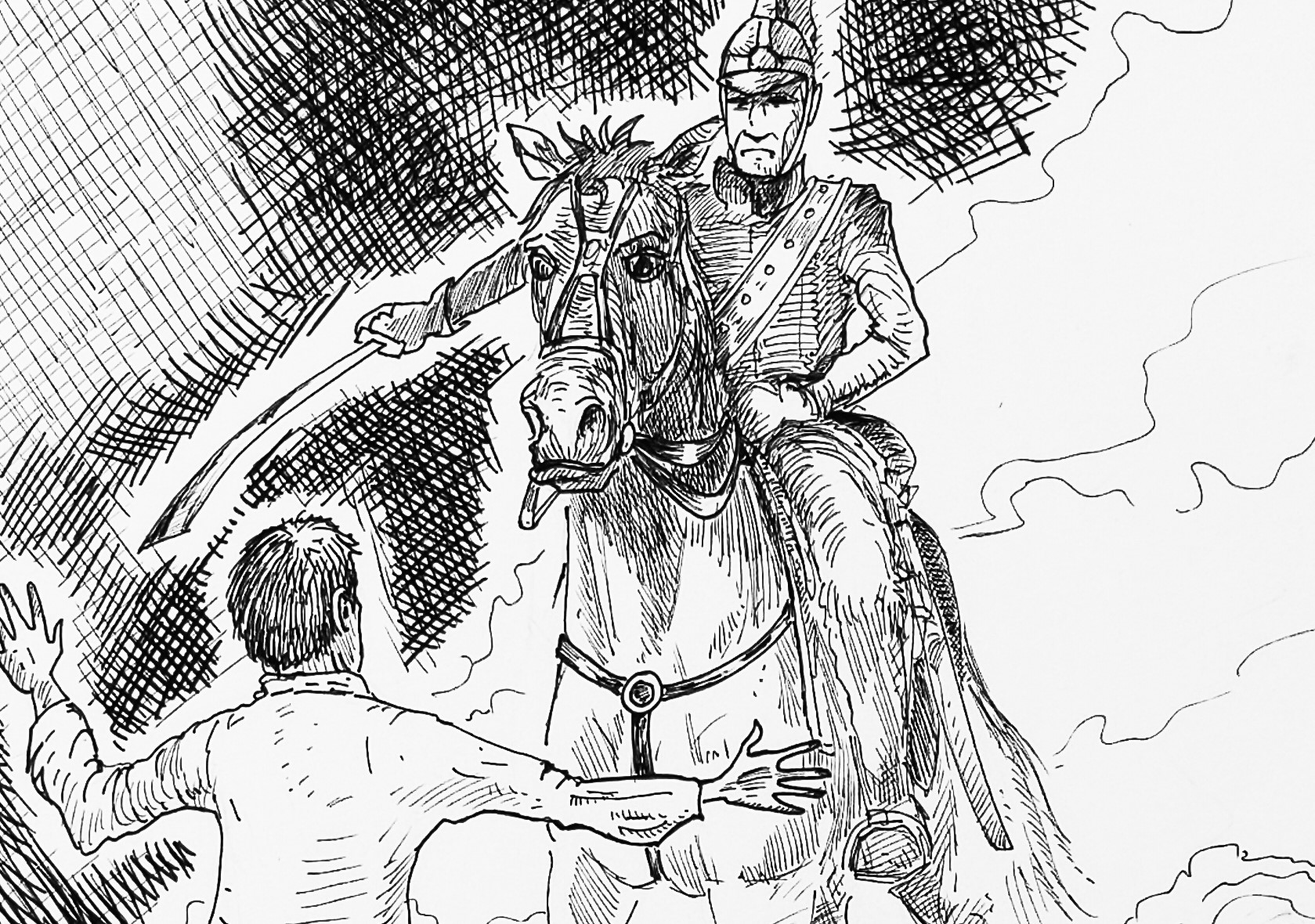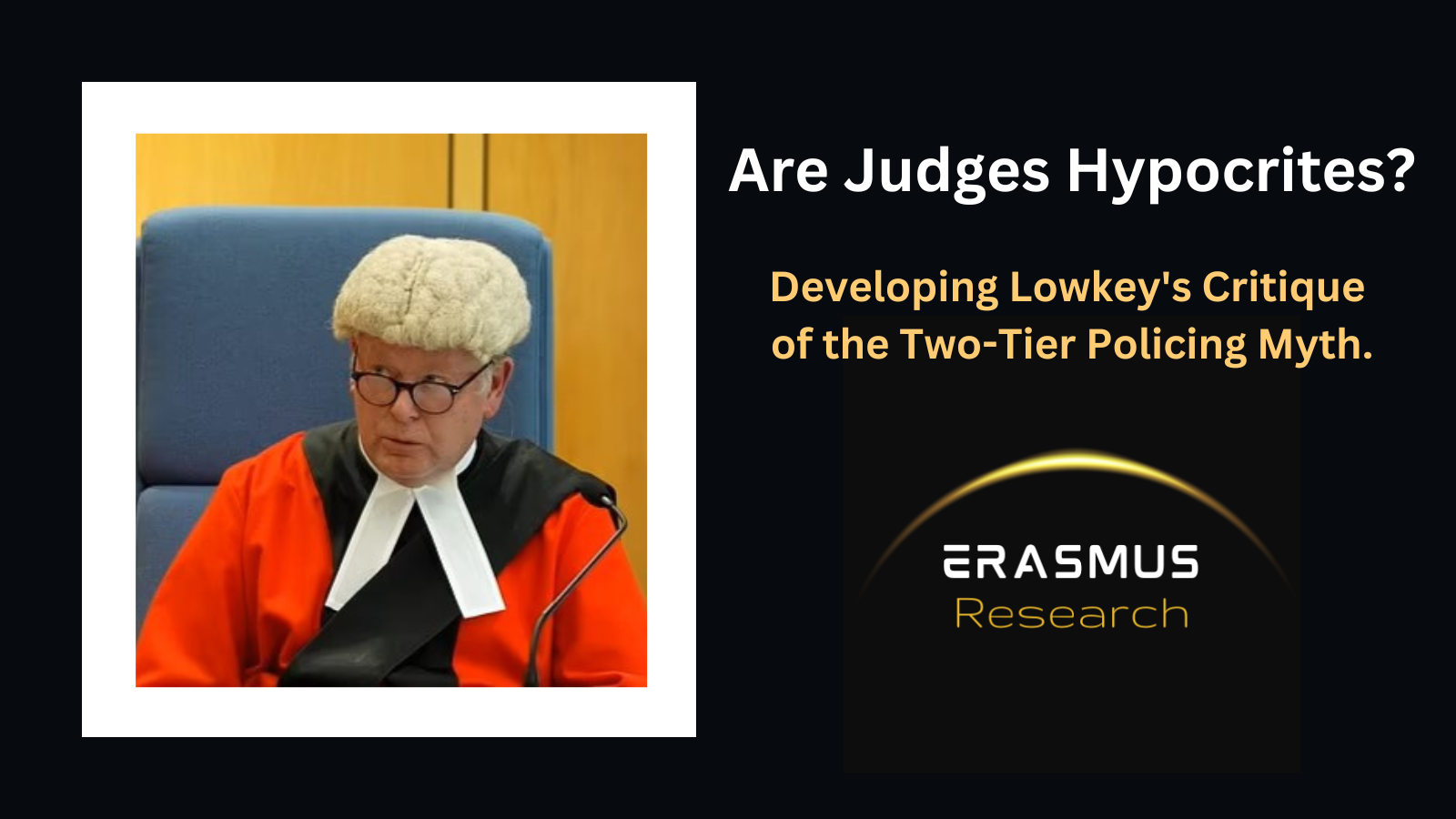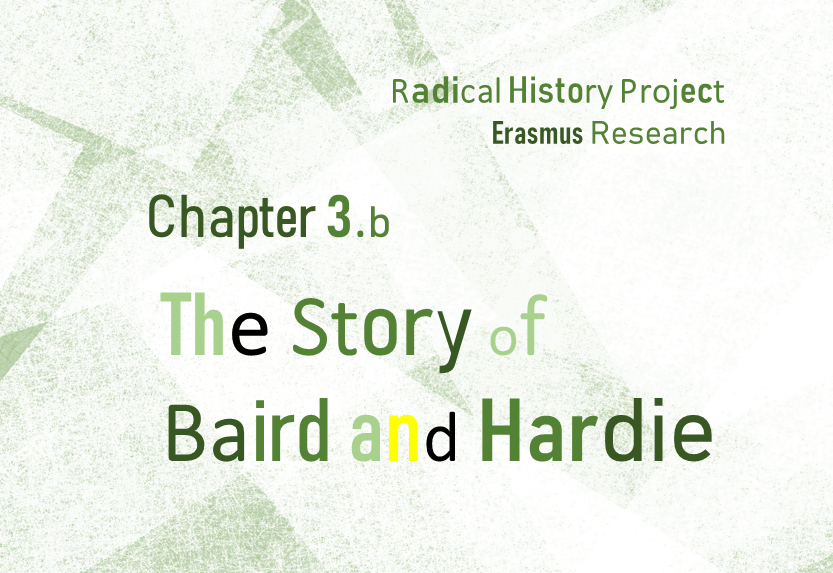A portal to the Highland Clearances – defiance and resistance at Arichonan
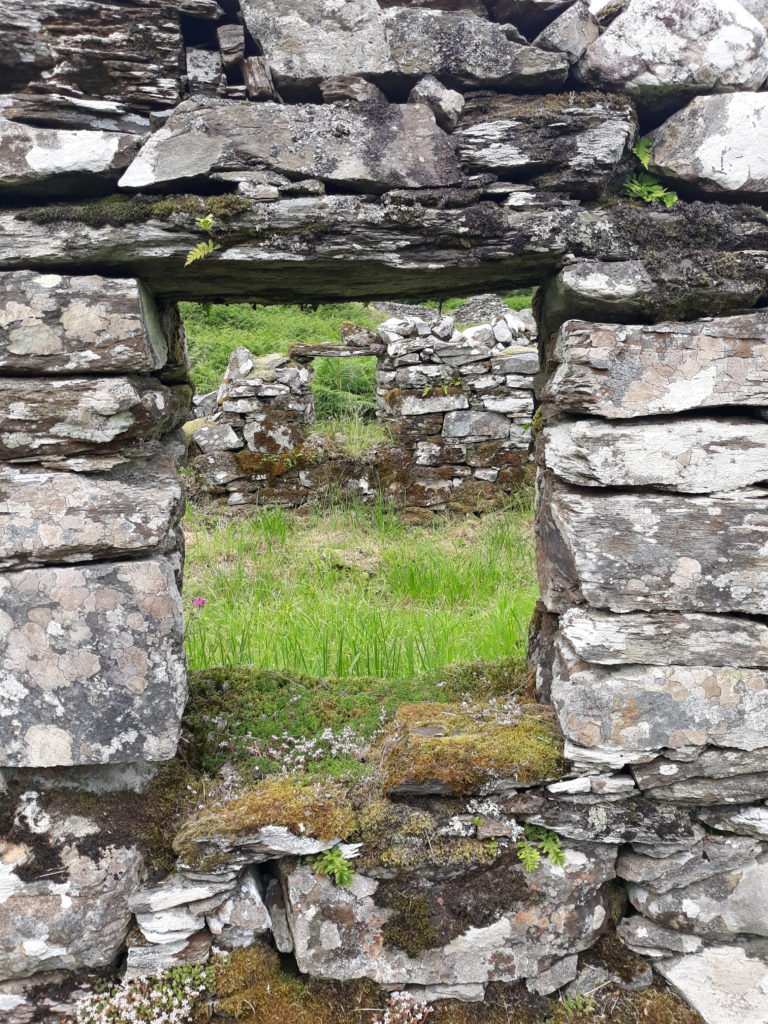
The day after Erasmus had signed the Routledge contract for a book on evictions, we decided to begin the journey by travelling back in time, to mid Argyll, in the mid 19th century.
We had been looking for this abandoned West Highland village for many years, so the book contract gave us the impetus to get out there and find it. We were glad we did.
The settlement officially dates back to the 17th century, but given that its name is Gaelic for Conan’s Shieling, it is likely that herdsmen would have been taking their cattle up on this high ground for many centuries. The Highland township of Arichonan is of great historic and archaeological interest.
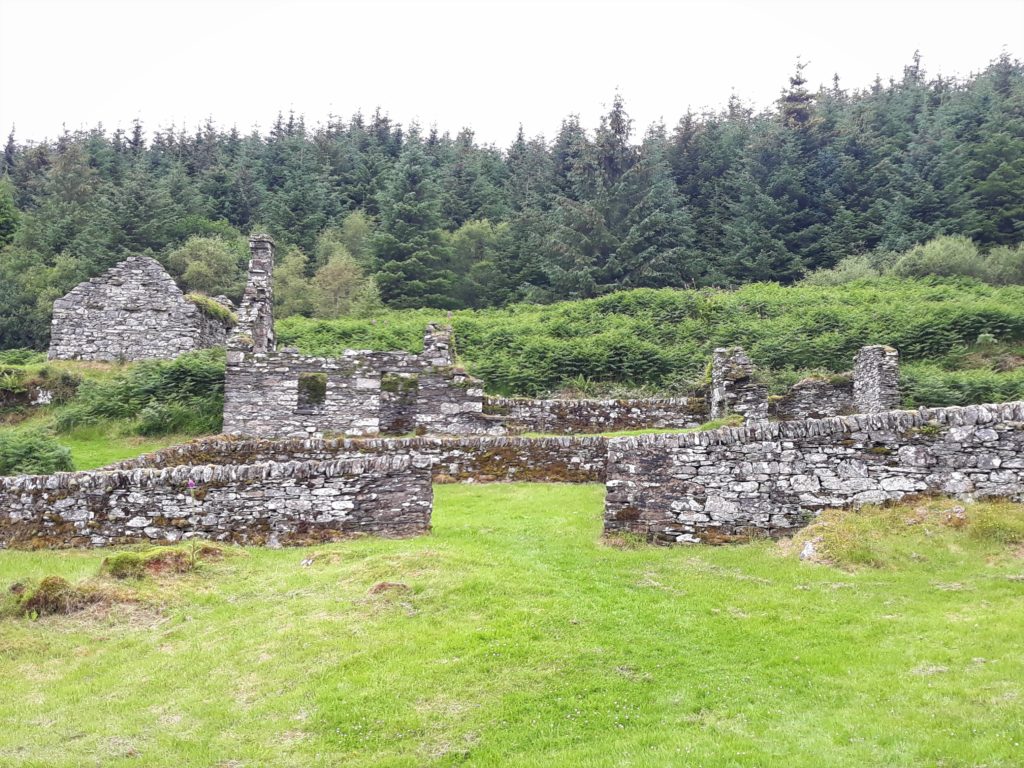
To provide a bit of context the Highland Clearances or Fuadaichean nan Gàidheal (the eviction of the Gaels) mostly took place between 1750 and 1860. The history of the Clearances in the Highlands is complex and varies depending on time and place. After the Jacobites were defeated at Culloden, the British State was determined to smash the very powerful Clan system and did so with great force. It banned the Gaelic language and other cultural practices such as the wearing of the traditional tartan plaid and the playing of the bagpipes. After the Clan system was effectively dismantled, and the threat of rebellion greatly reduced, the Highland clearances increasingly became more about making way for sheep and augmenting the landowner’s profits.
By 1800, Arichonan had a thriving community, with a school, a grain mill and herds of cattle that were taken along drover’s routes all the way to Falkirk. Highland life during this period would not have been easy, but despite the pressures on resources and the constant threat of hardship and famine, the population of Arichonan grew in the 19th century.
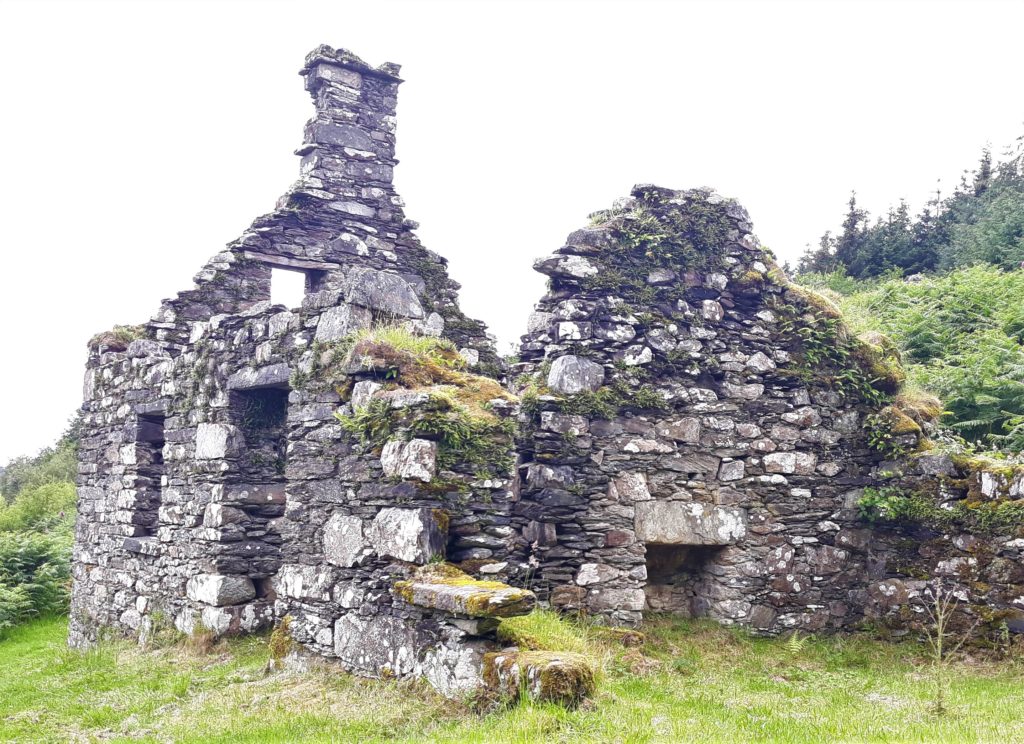
On the 4th April, 1848, the tenants of Arichonan were served notices informing them that their leases would be terminated on Whitsunday 27th May that year. With smallholdings in decline, the land would be used for sheep farming, with all tenants expected to peacefully vacate the township upon service of a termination notice.
When the people of Arichonan refused to go, the estate officials arrived with the local constabulary, to enforce the eviction notices. They were met with strong opposition. Some 100 tenants and neighbours from nearby villages stood defiantly against the landowners and the police. The reports, from official sources are of course one-sided, making claims of senseless rioting and brutality from villagers. These acts of resistance although gallant and principled, were ultimately futile against powerful landowners who, as well as having the full support of the Crown, enlisted the police to enforce the evictions. A situation not entirely unlike the evictions of today in the UK.
Many villagers were arrested with some being locked up in Inveraray Jail. Those who were spared prison were moved out and replaced by sheep.
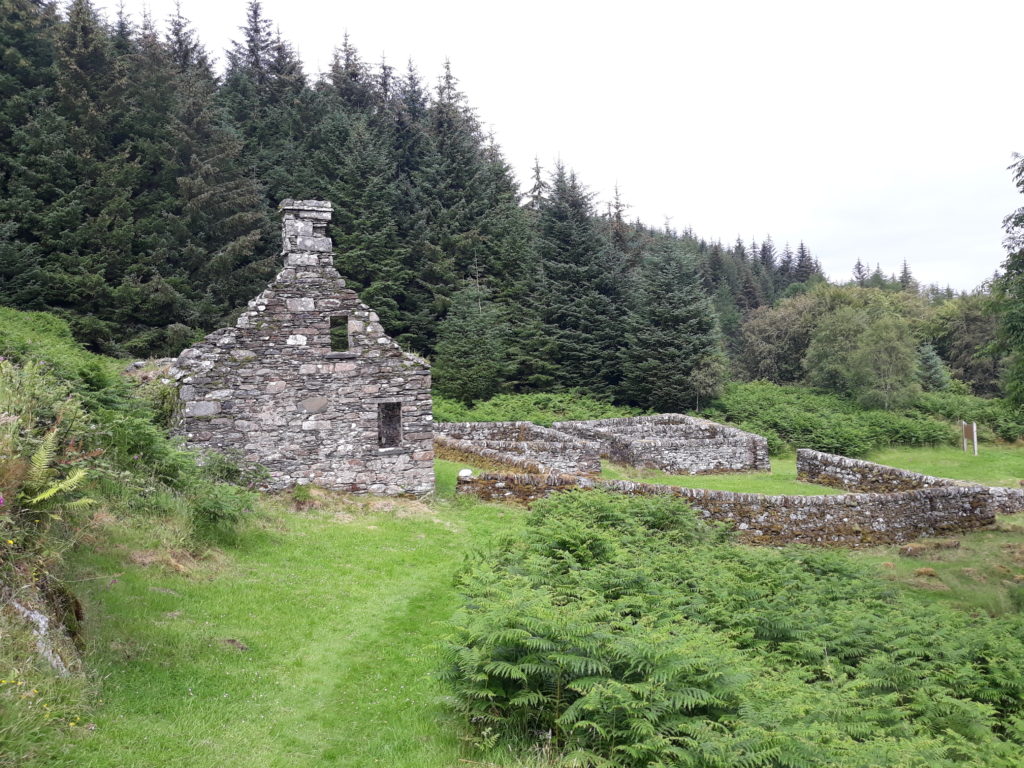
The background to this story is the determination of the British State to crush the powerful Clan system in the highlands in order to prevent further rebellion. It is a story of violence and greed; of imperialism and colonialism. It is a story of struggle, of economic and agricultural change and of social engineering. Most importantly, this is a story of defiance and resistance, futile as it proved to be. The refusal of the villagers of Arichonan to be forcefully evicted from their homes to make way for sheep, is a story of courage and determination, pride and tradition, community and love.
Just like the evictions that take place globally today, including in modern Scotland, the Highland clearances represent a social, economic and political system that favours the interests of the few over those of the many. The continued existence of evictions is a clear sign that all is not yet right with the world. In our academic investigations, we at Erasmus Research are examining evictions closely in order to better understand why forced removals continue to blight the lives of so many all over the world. The aim of this on-going research is to provide the knowledge and understanding required to challenge the underlying political principles, as well as the social and economic conditions, that make the eviction of peoples from their homes something we can bring to an end.
